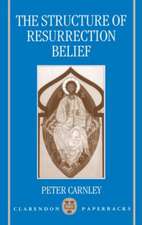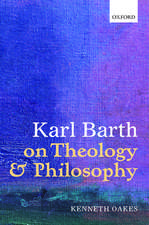Evagrius Ponticus and Cognitive Science: A Look at Moral Evil and the Thoughts
Autor George Tsakiridisen Limba Engleză Paperback – 31 dec 2009
| Toate formatele și edițiile | Preț | Express |
|---|---|---|
| Paperback (1) | 144.43 lei 6-8 săpt. | |
| Pickwick Publications – 31 dec 2009 | 144.43 lei 6-8 săpt. | |
| Hardback (1) | 262.29 lei 6-8 săpt. | |
| Pickwick Publications – 15 ian 2010 | 262.29 lei 6-8 săpt. |
Preț: 144.43 lei
Nou
Puncte Express: 217
Preț estimativ în valută:
27.64€ • 28.99$ • 23.01£
27.64€ • 28.99$ • 23.01£
Carte tipărită la comandă
Livrare economică 01-15 aprilie
Preluare comenzi: 021 569.72.76
Specificații
ISBN-13: 9781608990665
ISBN-10: 1608990664
Pagini: 124
Dimensiuni: 150 x 224 x 10 mm
Greutate: 0.2 kg
Editura: Pickwick Publications
ISBN-10: 1608990664
Pagini: 124
Dimensiuni: 150 x 224 x 10 mm
Greutate: 0.2 kg
Editura: Pickwick Publications
Notă biografică
George Tsakiridis is currently a Lecturer in Religious Studies at Saint Xavier University, Chicago.














